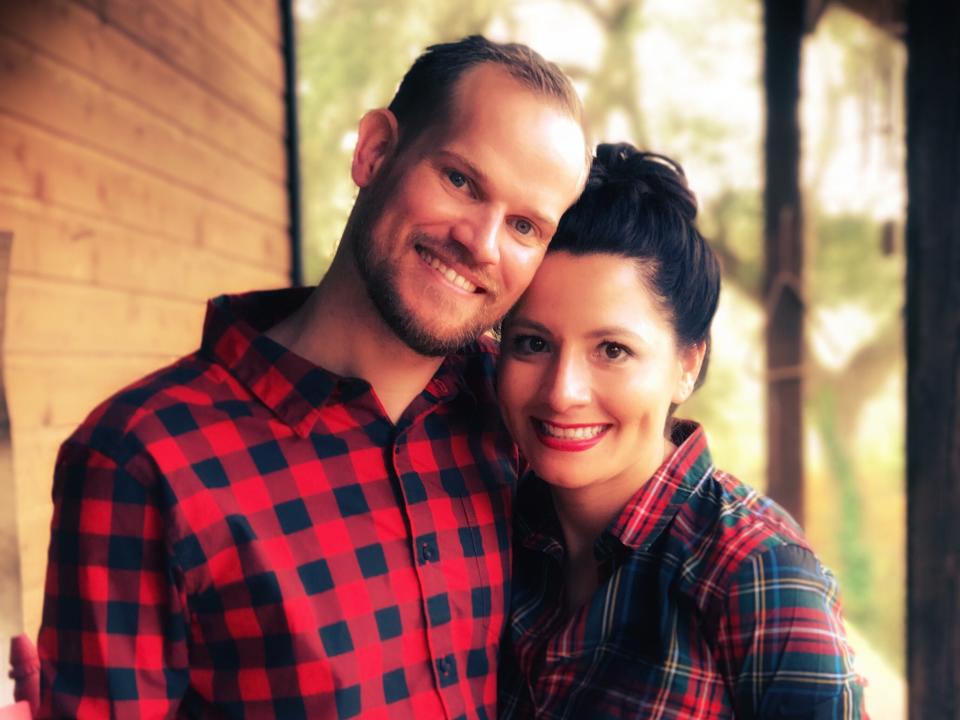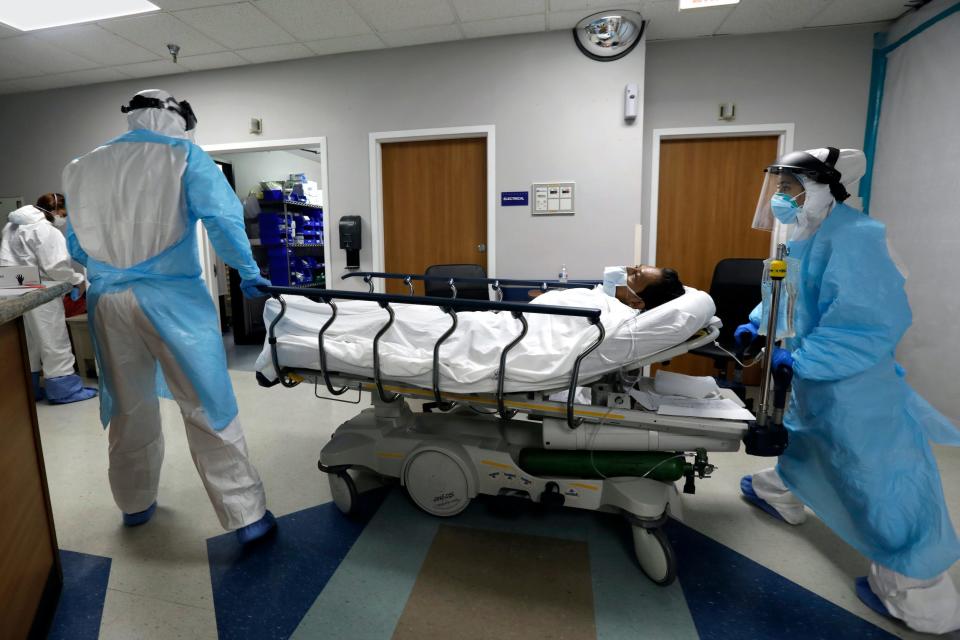A Texas Medical Center employee who hasn't seen her husband in 4 months wants people to take the coronavirus seriously so she can go home
Danielle Jones, an advanced clinical education specialist at Texas Medical Center, hasn't seen her husband since March 15.
The woman's older in-laws live on her property and she didn't want to put them at risk of COVID-19 exposure.
Cases in Texas began surging after Memorial Day.
Jones told Business Insider she wants residents to take safety measures seriously so she can go home to her family.
Video: What coronavirus stress is doing to your brain and body
Danielle Jones hasn't seen her husband since March 15.
The 37-year-old advanced clinical education specialist is one of the many healthcare workers around the US who made the tough decision to move out of their homes to ensure they don't expose their family to the novel coronavirus.
Four months in, though, Jones says the situation at Texas Medical Center is the worst it's ever been. She doesn't know when she'll get to move home.
"I just wish that everyone would be considerate of others, especially the elderly," Jones told Business Insider. "It's been quite challenging and lonely."
Texas is experiencing a surge in coronavirus cases, causing ICUs around the state to reach capacity.
As of Tuesday, there were 205,642 confirmed cases in Texas, according to data from Johns Hopkins University.
For staff at Texas Medical Center, which is the largest medical center in the world, there is no break from coronavirus cases, Jones said.

Provided by Danielle Jones
"It's just you walk in the door, you do your screening and you go gown up," she said. "And then, it's one right after the other, nonstop, until the end of the day."
Jones said people had a false sense of security about the virus
Jones works mostly with radiologists and CT scan technicians. The CT scans are a diagnostic tool for the coronavirus and, these days, all the machines are dedicated to virus screenings, she said.
The scans can show the seriousness of an individual's coronavirus case. A "halo effect" around the lungs, with cloudiness toward the lower end of the lung, shows inflammation, she said.
Early on in the outbreak, serious cases seemed limited to older individuals. Jones said that now she's seeing younger patients in the hospital, too.

Carolyn Cole/Los Angeles Times via Getty Images
Jones attributes the spike in cases to a brief slowdown before Memorial Day weekend. When the situation improved slightly, many residents put their guards down and started being more lax around social distancing measures, she said.
She called that period of time the "calm before the storm."
"I feel like people just thought it went away," she said. "Parks were crowded, the traffic returned. It was just like it disappeared."
Now that cases are continuing to go up, with the Governor implementing a mask requirement, Jones sees a bit of caution returning but is worried it might be too late.
"There was too much of a time period where they weren't taking it seriously," she said.
Being apart from family is hard, but it's safer than the alternative
Jones said the decision to move into an apartment away from her husband Christopher was difficult but necessary.
Christopher is a custom furniture designer and art teacher. During the pandemic, he has done the grocery shopping and been running errands for his parents, who live in a house on their property, she said.
They wanted to ensure that Christopher wouldn't be exposed to the coronavirus and, in turn, infect his parents, who are at a higher risk of experiencing dangerous complications.
"The way that we do stay connected is just through FaceTime and constantly talking to each other and texting," Jones said. "And just reassuring each other that we are doing the right thing for those around us."
To keep spirits up, she and some Texas Medical Center staff who are separated from their families will get together in small groups, she said.
Jones said she can't even take a guess at when she'll be able to return home, but that she believes the state is still weeks, if not a month, away from its peak in cases.
"That's the scary part, not knowing is what's going to come out of this," she said.
Read the original article on Business Insider

